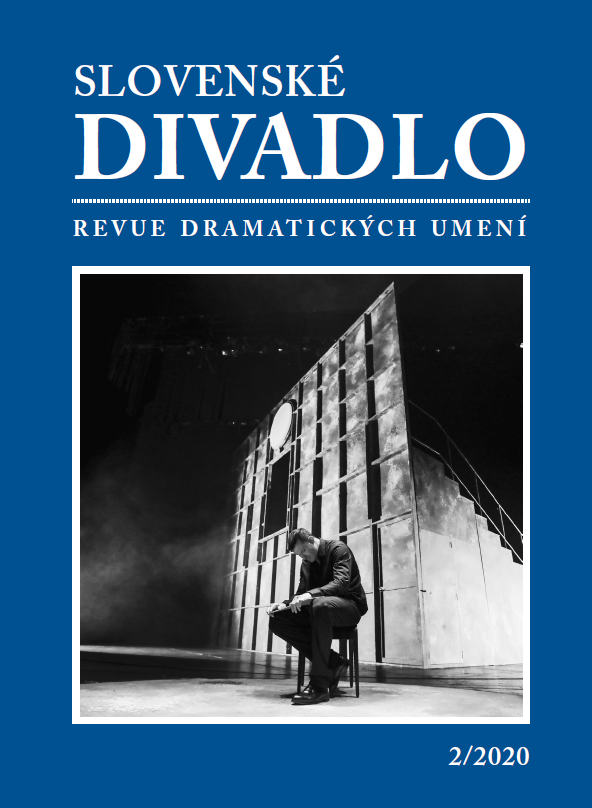Kierkegaardov koncept opakovania v inscenácii Banalita lásky
KIERKEGAARD´S CONCEPT OF REPETITION IN THE BANALITY OF LOVE
Author(s): Katarína GabašováSubject(s): Theatre, Dance, Performing Arts, Existentialism
Published by: Ústav divadelnej a filmovej vedy SAV
Keywords: Banalita lásky; Søren Kierkegaard; existencializmus; spomínanie; opakovanie; vášeň; voľba; autentickosť;
Summary/Abstract: The study is devoted to depicting recollection in a selected production Banalita lásky (The Banality of Love, Andrej Bagar Theatre, 2019). It broadens out the scope of interpretation by elucidating Søren Kierkegaard’s concept of repetition, which in his works is a key religious category of transcendence. Kierkegaard considered repetition as a temporal movement of existence and also an important tool of becoming human self in terms of freedom and personal identity. The main intention is to shed light on the difference between the concepts of recollection and repetition. The question at issue is whether or not Kierkegaard’s repetition is present according to the recollection of the past romance between the main characters Hannah Arendt and Martin Heidegger. The experience of recollection is different from repetition in relation to how an individual lives. The possibility of repetition rests with the subject and not with the caprices of external conditions. To conclude, it is suggested that Kierkegaard’s concept of repetition is highly relevant and present in Arendt’s character and her attitude to her past and present life with respect to its complexity. The author reflects on the distinction between recollection and repetition, which can provide a hermeneutic key to understanding the main theme of the selected production.
Journal: Slovenské divadlo
- Issue Year: 68/2020
- Issue No: 02
- Page Range: 163-175
- Page Count: 13
- Language: Slovak

